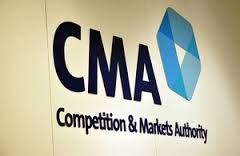Tom Madge-Wyld reporting from the GCR Live 5th Annual Telecoms, Media & Technology in London
5 July 2016 – The acting chief executive of the UK’s Competition and Markets Authority said today that the agency doesn’t have the staffing resources to tackle its current Competition Act caseload, due to the demands made by major market investigations. Responding to a question about such investigations as a means of appraising a sectoral regulator, Andrea Coscelli said it was crucial to assess their benefits against the possible cost in the authority’s resources:
“From a public agency point of view, I think it is a trade-off: whether there is enough extra benefit from essentially marking the homework of someone else, versus potentially prosecuting some cartels or some Chapter One [restrictive agreements] or Chapter Two [abuse of dominance] cases, which at the moment we have, but we just don’t have enough people to do”.
Coscelli, who became the acting head of the UK competition authority earlier this month, said observers who want the agency to act as a check on sectoral regulators should not underestimate the difficulties of in-depth assessments of complex industries:
“For us to do properly the energy market and banking market investigation, we had to put a significant chunk of our resources for two years doing those two investigations. These are people who would otherwise have spent quite a lot of time working on a number of Competition Act cases.”
He acknowledged that there was merit to the argument that a market investigation can bring a fresh pair of eyes to a sectoral regulator, but said it was important to balance a number of different considerations and tradeoffs.
Coscelli also highlighted the possibility of regulatory arbitrage, in which participants in an industry who dislike the outcome reached by their sector regulator will want to rerun the matter before a different government agency:
“If you look at the regulator to a degree as the referee on a number of complex matters, with two sides of the argument, there is risk for us that people who don’t like the outcome essentially want a second game with a different referee and see whether the outcome is different. In terms of public money, this is potentially a very expensive way of doing it.”
